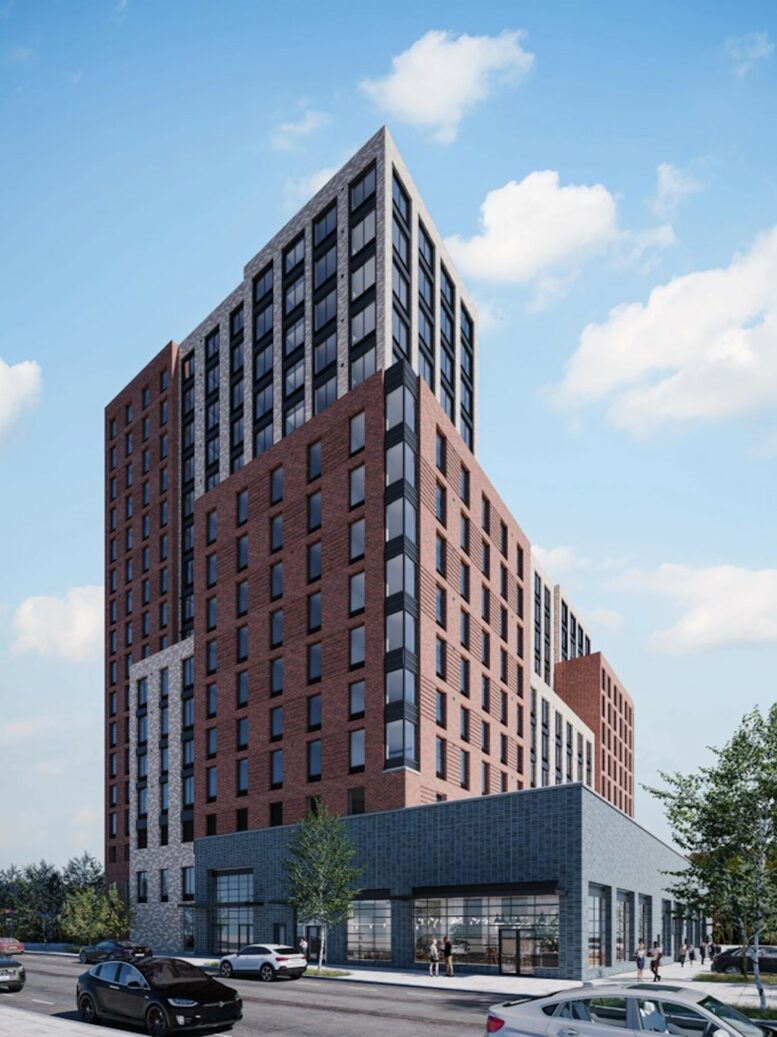Investments Include Protecting Key Education and Child Care Programs, Doubling Down on Public Safety Measures to Continue Crime Reductions, Supporting Thousands of Cultural Institutions, and Putting Money in Pockets of Working-Class New Yorkers
Administration’s Proactive Fiscal Management Combined with Stronger Than Anticipated Economic Performance Helped Stabilize City’s Financial Outlook
Mayor Adams Continues to Make Investments That Prioritize Public Safety, Economic Opportunity, Quality of Life Initiatives
New York City Mayor Eric Adams today released the City of New York’s balanced $111.6 billion Fiscal Year (FY) 2025 Executive Budget. Mayor Adams' budget builds on the administration’s actions, since last fall, to stabilize the city’s fiscal outlook, and has positioned the city to backfill long-term programs that had only been funded with temporary stimulus funds while making the investments that double down on the city’s efforts to strengthen public safety, rebuild the economy, and make the city more livable. These investments will specifically add more police officers to city streets and subways, protect educational programs with city and recurring state funds and increase access to early childhood education, provide support for thousands of cultural institutions, and boost programs that improve the quality of life for working-class New Yorkers. By virtue of Mayor Adams’ strong fiscal management and better-than-expected revenue, the Adams administration balanced the budget, stabilized the city’s fiscal position and outlook, and prevented major service cuts, tax hikes, or layoffs.
FY24 and FY25 remain balanced, with outyear gaps of $5.5 billion, $5.5 billion, and $5.7 billion in Fiscal Years 2026 through 2028, respectively. Growth of $2.2 billion in FY25 over the Preliminary Budget is driven by stronger than expected economic activity in FY24 and an improved outlook in FY25.
“When we came into office two years ago, during the height of another wave of the COVID-19 pandemic, we were determined to protect public safety, rebuild our economy, and make our city more livable for working-class New Yorkers,” said Mayor Adams. “We have made great strides in these commitments, and today, crime is down, jobs are up, our streets are cleaners, we’re taking on major quality of life issues, and we have financed the most newly constructed affordable housing in a single year in our city’s history. Thanks to our strong fiscal management, we are able to invest in the things that matter to New Yorkers in this Fiscal Year 2025 Executive Budget, including public safety, early childhood education, and the needs of working-class people. As New York City moves toward the future, our core values will continue to guide us as we continue to build a safer, more equitable, and more prosperous city for all New Yorkers.”
Proactive Fiscal Management
On the heels of the pandemic, New York City had to confront substantial challenges, filling holes left where long-term programs were funded with temporary stimulus dollars, and the costs of funding fair labor deals that went years unresolved with city employees. While there are still reasons to remain cautious — like slowing revenue growth in coming fiscal years — by making smart decisions in the November and January plans — like monitoring spending and trimming agency and asylum seeker budgets — as well as better-than-expected revenue, the administration has balanced the budget and steadied the city’s fiscal position.
Strong and decisive action led to achieving a record level of gap-closing savings, and due to better-than-expected economic growth, the administration was able to cancel the previously announced Executive Budget Program to Eliminate the Gap (PEG). As good stewards of taxpayer dollars, the administration still achieved $41 million in agency expense savings, over FY24 and FY25, driven by underspending, where agencies spent less than expected to fund a program or service. This has no impact on service delivery.
Additionally, because continuing to fund the needs of the asylum seeker humanitarian crisis without any limits was not sustainable, Mayor Adams committed to PEG the city’s asylum seeker spending over FY24 and FY25 by a total of approximately 30 percent between the Preliminary and Executive Budgets. As a result of the administration’s policies — including providing 30 to 60 days of housing, legal support, intensified case management, and reducing per diem household costs — more than 65 percent of the asylum seekers who have come through the city’s intake centers have left the city’s care and taken the next steps in their journeys. The administration has successfully cut migrant costs in the Executive Budget by $586 million over FY24 and FY25. Along with $1.7 billion in migrant costs previously cut in the FY25 Preliminary Budget, this brings the two-year total migrant PEG savings achieved to nearly $2.3 billion.
Total savings — including the asylum seeker PEGs — achieved in FY24 and FY25 over the November, January, and April Financial Plans is now $7.2 billion.
Additionally, tax revenue has been revised up by $619 million in FY24 and $1.7 billion in FY25 compared with the Preliminary Budget due to better than anticipated economic performance in 2023 and an improved economic outlook in 2024. These additional revenues were used to help remain balanced in FY24 and FY25. However, tax revenue growth is expected to cool in upcoming fiscal years as the local economy slows, bolstering the fact that the city cannot rely exclusively on revenue growth to resolve fiscal challenges.
Maintaining budget reserves as a hedge against the unexpected is a critical part of the administration’s strong financial management strategy. The FY25 Executive Budget maintains a near-record level $8.2 billion in reserves, including $1.2 billion in the General Reserve, $4.8 billion in the Retiree Health Benefits Trust Fund, $250 million in the Capital Stabilization Reserve, and $1.96 billion in the Rainy-Day Fund.
FY25 Priorities
The FY25 Executive Budget enhances safety and doubles down on the Adams administration’s efforts to continue to bring down crime by adding two more police classes this year and putting 1,200 additional police officers on the streets by adding July and October New York City Police Department (NYPD) classes. Now, all police academy classes will be fully funded in 2024. This adds 2,400 new police officers to city streets in the coming year and puts New York City on the path to having a total of 35,000 uniformed officers protecting New Yorkers in the coming years.
The Adams administration’s strong fiscal management, combined with a stronger than anticipated economic performance in 2023, helped put the city in a position to fund a number of stimulus-funded long-term programs that could be backfilled with city and state dollars. In the FY25 Executive Budget, Mayor Adams uses $514 million in city and recurring state funds to support key education programs that had been funded with expiring stimulus dollars, including mental health care, career readiness, and literacy programs for New York City public school students.
Additionally, the administration is making multiple investments in New York City’s cultural sector by allocating more than $22 million over the next three fiscal years to the New York City Department of Cultural Affairs. These investments will support over 1,000 cultural organizations, which make up the heart and soul of New York City and are the cornerstone of its economic rebound.
More specifically, some highlighted investments of the FY25 Executive Budget include:
Keeping New Yorkers Safe
- Doubling down on decreases in homicides and shootings by adding 1,200 more police recruits between the July and October NYPD classes, putting New York City on a path to have 35,000 uniformed officers in the coming years ($62.4 million, FY25).
- Funding for the Job Connections initiative, which will connect 500 young New Yorkers at risk of gun violence with career readiness and green job placement programs ($16.9 million, FY25).
- Expanding the Crisis Management System to support additional Cure Violence coverage areas and additional mental health services in gun violence safety precincts ($8.6 million, FY25).
- Supporting the Neighborhood Safety Alliance, which fosters collaboration between communities, actors, law enforcement agencies, and city services to reduce gun violence in six additional precincts ($2.5 million, FY25).
Securing a Better Future for New York City Children
- Supporting citywide 3-K expansion as it transitions from its original stimulus funding source ($92 million, FY25).
- Supporting nearly 500 social workers and psychologists who provide mental health supports in schools ($74 million, FY25)*.
- Maintaining funding for special education Pre-K providers to increase service hours, and resources for DOE-related services and evaluation teams ($56 million, FY25)*.
- Investing in pathways programs that facilitate career pathways programs in high schools — offering apprenticeships, career-readiness, and access to college credits ($53 million, FY25)*.
- Arts funding programming ($41 million, FY25).
- Literacy and dyslexia programs and academic assessments for both English language arts, and math ($17 million, FY25)*.
- Funding for coordinators for students in temporary housing in schools and shelters ($17 million, FY25)*.
- Bilingual education funding for curriculum and assessment, teacher preparation and staffing, professional learning, and multilingual family and community engagement for 100 bilingual programs ($10 million, FY25)*.
- Increasing the availability of in-school early childhood education classes and services for students with special needs ($25 million, FY25).
- Maximizing enrollment in early childhood education programming and helping parents connect with Pre-K and 3-K seats with an extensive media outreach and marketing campaign ($3.5 million, FY25).
* Indicates funded with recurring state resources.
Investing in Cherished Cultural Institutions
- Allocating funding for the Cultural Institutions Group, 34 cultural nonprofits operated on city-owned property ($5.4 million, FY25).
- Investing in the Cultural Development Fund, which supports over 1,000 cultural nonprofits across the city ($2.2 million, FY25).
Putting More Money in the Pockets of Working-Class New Yorkers
- Investing in stable housing for the most vulnerable New Yorkers by funding the City Family Homelessness and Eviction Prevention Supplement programs in the baseline ($615 million, FY25).
- Wiping out $2 billion in medical debt for qualified low-income and severely debt-burdened New Yorkers through RIP Medical Debt, which buys debt at a steep discount and forgives repayment. This is the largest municipal medical debt program of its kind in the country ($6 million, FY25).
- Ensuring eligible New Yorkers learn about supportive city programs that are available to them and make accessing the resources easy and efficient via the NYC Benefits Access Initiative ($4.6 million, FY25).
- Helping unemployed New Yorkers connect with job opportunities and career support across the city’s public workforce through the Jobs NYC Employment Sprint system with a talent portal and by bringing hiring halls to communities experiencing high unemployment ($1 million, FY25).
- Accelerating Minority and Women-Owned Business Enterprises (M/WBE) and community hiring by implementing tools to track the implementation of community hiring legislation and the new city-wide M/WBE program ($5.5 million, FY25).
- Helping low-to moderate-income communities by funding grants to create and support new Small Business Improvement Districts and merchant associations ($5.3 million, FY25).
- Establishing the NYC Future Fund that will make loans to Black, indigenous, and people of color-owned businesses with a focus on early-stage businesses ($2 million, FY25).
Climate Budgeting
Mayor Adams is taking a critical step towards making the city cleaner and greener over generations to come in his FY25 Executive Budget. New York City is the first big city in America, and among a small elite group of cities internationally, to implement climate budgeting, a system that integrates climate targets and considerations into the budget process to help achieve the city's goals of net-zero greenhouse gas emissions and resiliency to climate threats. Critically, climate impact will now be one of the many factors that will be balanced when allocating the city’s limited resources to ensure resources are aligned with sustainability and resiliency needs. And — for the first time and moving forward — the Executive Budget will also include a Climate Budgeting publication that will include an analysis of the city's new and ongoing climate investments and progress toward emissions goals.



